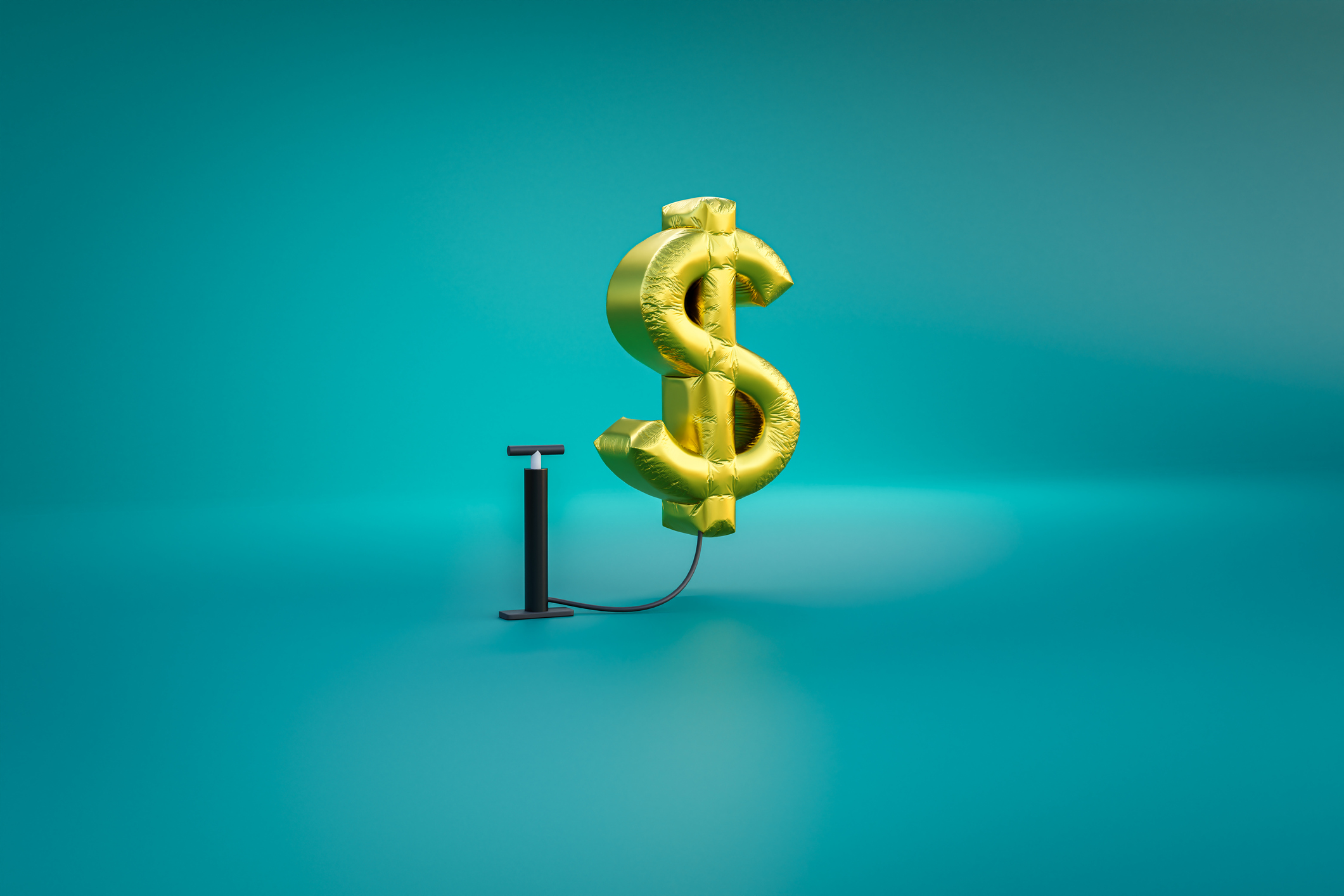April CPI Keeps Fed Rate Cuts on Hold for Now: What the Experts Say
The April CPI report is unlikely to change the Fed's wait-and-see approach to interest rates.


Profit and prosper with the best of Kiplinger's advice on investing, taxes, retirement, personal finance and much more. Delivered daily. Enter your email in the box and click Sign Me Up.
You are now subscribed
Your newsletter sign-up was successful
Want to add more newsletters?

Delivered daily
Kiplinger Today
Profit and prosper with the best of Kiplinger's advice on investing, taxes, retirement, personal finance and much more delivered daily. Smart money moves start here.

Sent five days a week
Kiplinger A Step Ahead
Get practical help to make better financial decisions in your everyday life, from spending to savings on top deals.

Delivered daily
Kiplinger Closing Bell
Get today's biggest financial and investing headlines delivered to your inbox every day the U.S. stock market is open.

Sent twice a week
Kiplinger Adviser Intel
Financial pros across the country share best practices and fresh tactics to preserve and grow your wealth.

Delivered weekly
Kiplinger Tax Tips
Trim your federal and state tax bills with practical tax-planning and tax-cutting strategies.

Sent twice a week
Kiplinger Retirement Tips
Your twice-a-week guide to planning and enjoying a financially secure and richly rewarding retirement

Sent bimonthly.
Kiplinger Adviser Angle
Insights for advisers, wealth managers and other financial professionals.

Sent twice a week
Kiplinger Investing Weekly
Your twice-a-week roundup of promising stocks, funds, companies and industries you should consider, ones you should avoid, and why.

Sent weekly for six weeks
Kiplinger Invest for Retirement
Your step-by-step six-part series on how to invest for retirement, from devising a successful strategy to exactly which investments to choose.
The latest Consumer Price Index (CPI) report showed inflation rose less than expected in April, encouraging news for those worried about the impact of President Donald Trump's tariffs on price growth.
According to the Bureau of Labor Statistics, headline CPI rose 0.2% month over month in April, faster than March's 0.1% decline and in line with economists' projections.
However, the CPI was up 2.3% year over year, slower than the 2.4% consensus estimate and the lowest reading since February 2021.
From just $107.88 $24.99 for Kiplinger Personal Finance
Become a smarter, better informed investor. Subscribe from just $107.88 $24.99, plus get up to 4 Special Issues

Sign up for Kiplinger’s Free Newsletters
Profit and prosper with the best of expert advice on investing, taxes, retirement, personal finance and more - straight to your e-mail.
Profit and prosper with the best of expert advice - straight to your e-mail.
Shelter accounted for more than half the monthly increase, rising 0.3% from the month prior. Energy costs rose 0.7% amid upticks in natural gas and electricity, though this was slightly offset by a drop in gas prices.
Core CPI, which excludes volatile food and energy prices and is seen as a better measure of underlying inflation trends, was up 0.2% from March to April and 2.8% year over year. The monthly figure came in lower than the 0.2% gain expected by economists, while the annual increase matched forecasts.
"Today's CPI report is a welcome sign that inflation does not appear to be a major concern ahead of tariff impacts," says Jason Pride, chief of investment strategy and research at Glenmede.
Pride adds that today's data are unlikely to change the Fed's plans for rate cuts. "The relative health of the labor market affords it the ability to take a patient approach as the effects of tariffs begin to work their way through the economy," he says, adding that his base case is for three cuts in the back half of this year.
News that the U.S. and China have drastically reduced reciprocal tariffs for 90 days as they continue trade talks has already put a dent in rate-cut expectations.
According to CME FedWatch, futures traders are now pricing in a 52% chance the Fed will issue its next quarter-point rate cut at its September meeting, up from 28% a month ago. The betting odds are for just one additional rate cut by the end of the year.
As for the next Fed meeting, which runs June 17-18, it's widely anticipated that the central bank will hold interest rates steady.
With the April CPI data now in the books, here's some of what economists, strategists and other experts around Wall Street have to say about the results and what they could mean for investors going forward.
Experts' takes on the April CPI report

"The wide range of estimates coming into today's CPI report underscores the difficulty for market participants to size the significant uncertainty facing both corporations and consumers. Prior to the release, we were closely monitoring the data for initial indications of tariff impacts on inflation, specifically focusing on the tension between goods prices and softening demand for certain services like travel." — Alexandra Wilson-Elizondo, global co-head and co-chief investment officer of Multi-Asset Solutions within Goldman Sachs Asset Management
"Fears of slowing growth and a recession caused by punitive tariffs drove markets lower in the first week of April, but they've rebounded on the heels of a tariff pause and a Chinese trade breakthrough, and now a better-than-expected inflation report removes the last big overhang for the market. We're still concerned that high valuations and market concentration remain risks to much higher stock prices this year, but in the short run, markets should love this data and continue yesterday's (China-trade) celebration." — Chris Zaccarelli, chief investment officer for Northlight Asset Management
"Given the overarching tariff situation, this was probably one of the least important CPI prints since the inflation spike of 2022. Inflation from the new tariffs announced on Liberation Day (April 2) will not likely show up until at least next month or perhaps even June's readings. What today's benign inflation numbers do mean is that the Fed will be on hold for the foreseeable future, given that inflation continues to drop and unemployment is steady." — John Kerschner, head of U.S. Securitized Products & Portfolio Manager at Janus Henderson
"The initial inflation reading is probably reassuring for markets, increasing the likelihood the Fed moves to drop rates to counter downward revisions to growth. At the same time, surveys have shown an increase in near-term inflation expectations that are still concerning as tariffs move through the system." — Scott Helfstein, head of Investment Strategy at Global X
"Today's release should not shift the Federal Reserve's thinking, and importantly, the May CPI report will come out before the June FOMC meeting. Like the Fed, investors are likely to look through today's report as the prospect of trade deals and details on the budget reconciliation process are more material drivers for equities in the coming weeks. However, the absence of a negative with today's print does lend to incremental upside for risk assets as hedges are unwound." – Josh Jamner, investment strategy analyst at ClearBridge Investments
"The latest inflation data indicate that price growth continues to slow overall. This trajectory may experience some bumps along the way, but recent developments in trade talks suggest the impact from tariffs could be less jarring than expected. That said, nothing is currently certain. If the past few months have taught us anything, it's that the state of play can change rapidly. Across the economy (and even at the Fed), there is likely an understandable reluctance to make big decisions." — Elizabeth Renter, senior economist at NerdWallet
Related content
Profit and prosper with the best of Kiplinger's advice on investing, taxes, retirement, personal finance and much more. Delivered daily. Enter your email in the box and click Sign Me Up.

With over a decade of experience writing about the stock market, Karee Venema is the senior investing editor at Kiplinger.com. She joined the publication in April 2021 after 10 years of working as an investing writer and columnist at a local investment research firm. In her previous role, Karee focused primarily on options trading, as well as technical, fundamental and sentiment analysis.
-
 Nasdaq Leads a Rocky Risk-On Rally: Stock Market Today
Nasdaq Leads a Rocky Risk-On Rally: Stock Market TodayAnother worrying bout of late-session weakness couldn't take down the main equity indexes on Wednesday.
-
 Quiz: Do You Know How to Avoid the "Medigap Trap?"
Quiz: Do You Know How to Avoid the "Medigap Trap?"Quiz Test your basic knowledge of the "Medigap Trap" in our quick quiz.
-
 5 Top Tax-Efficient Mutual Funds for Smarter Investing
5 Top Tax-Efficient Mutual Funds for Smarter InvestingMutual funds are many things, but "tax-friendly" usually isn't one of them. These are the exceptions.
-
 Nasdaq Leads a Rocky Risk-On Rally: Stock Market Today
Nasdaq Leads a Rocky Risk-On Rally: Stock Market TodayAnother worrying bout of late-session weakness couldn't take down the main equity indexes on Wednesday.
-
 5 Top Tax-Efficient Mutual Funds for Smarter Investing
5 Top Tax-Efficient Mutual Funds for Smarter InvestingMutual funds are many things, but "tax-friendly" usually isn't one of them. These are the exceptions.
-
 Why Invest In Mutual Funds When ETFs Exist?
Why Invest In Mutual Funds When ETFs Exist?Exchange-traded funds are cheaper, more tax-efficient and more flexible. But don't put mutual funds out to pasture quite yet.
-
 Social Security Break-Even Math Is Helpful, But Don't Let It Dictate When You'll File
Social Security Break-Even Math Is Helpful, But Don't Let It Dictate When You'll FileYour Social Security break-even age tells you how long you'd need to live for delaying to pay off, but shouldn't be the sole basis for deciding when to claim.
-
 I'm an Opportunity Zone Pro: This Is How to Deliver Roth-Like Tax-Free Growth (Without Contribution Limits)
I'm an Opportunity Zone Pro: This Is How to Deliver Roth-Like Tax-Free Growth (Without Contribution Limits)Investors who combine Roth IRAs, the gold standard of tax-free savings, with qualified opportunity funds could enjoy decades of tax-free growth.
-
 One of the Most Powerful Wealth-Building Moves a Woman Can Make: A Midcareer Pivot
One of the Most Powerful Wealth-Building Moves a Woman Can Make: A Midcareer PivotIf it feels like you can't sustain what you're doing for the next 20 years, it's time for an honest look at what's draining you and what energizes you.
-
 Stocks Make More Big Up and Down Moves: Stock Market Today
Stocks Make More Big Up and Down Moves: Stock Market TodayThe impact of revolutionary technology has replaced world-changing trade policy as the major variable for markets, with mixed results for sectors and stocks.
-
 I'm a Wealth Adviser Obsessed With Mahjong: Here Are 8 Ways It Can Teach Us How to Manage Our Money
I'm a Wealth Adviser Obsessed With Mahjong: Here Are 8 Ways It Can Teach Us How to Manage Our MoneyThis increasingly popular Chinese game can teach us not only how to help manage our money but also how important it is to connect with other people.